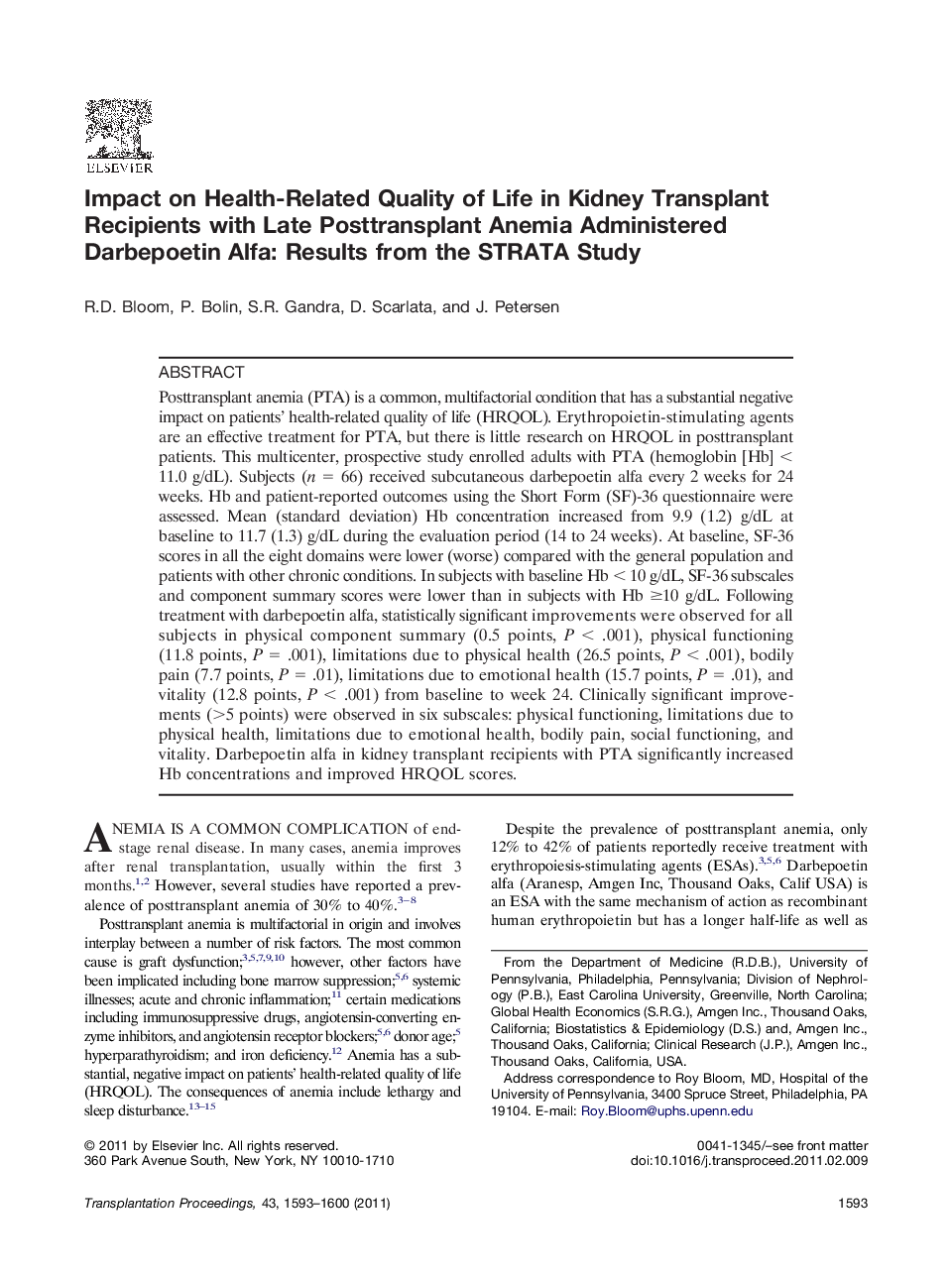| Article ID | Journal | Published Year | Pages | File Type |
|---|---|---|---|---|
| 6249210 | Transplantation Proceedings | 2011 | 8 Pages |
Posttransplant anemia (PTA) is a common, multifactorial condition that has a substantial negative impact on patients' health-related quality of life (HRQOL). Erythropoietin-stimulating agents are an effective treatment for PTA, but there is little research on HRQOL in posttransplant patients. This multicenter, prospective study enrolled adults with PTA (hemoglobin [Hb] < 11.0 g/dL). Subjects (n = 66) received subcutaneous darbepoetin alfa every 2 weeks for 24 weeks. Hb and patient-reported outcomes using the Short Form (SF)-36 questionnaire were assessed. Mean (standard deviation) Hb concentration increased from 9.9 (1.2) g/dL at baseline to 11.7 (1.3) g/dL during the evaluation period (14 to 24 weeks). At baseline, SF-36 scores in all the eight domains were lower (worse) compared with the general population and patients with other chronic conditions. In subjects with baseline Hb < 10 g/dL, SF-36 subscales and component summary scores were lower than in subjects with Hb â¥10 g/dL. Following treatment with darbepoetin alfa, statistically significant improvements were observed for all subjects in physical component summary (0.5 points, P < .001), physical functioning (11.8 points, P = .001), limitations due to physical health (26.5 points, P < .001), bodily pain (7.7 points, P = .01), limitations due to emotional health (15.7 points, P = .01), and vitality (12.8 points, P < .001) from baseline to week 24. Clinically significant improvements (>5 points) were observed in six subscales: physical functioning, limitations due to physical health, limitations due to emotional health, bodily pain, social functioning, and vitality. Darbepoetin alfa in kidney transplant recipients with PTA significantly increased Hb concentrations and improved HRQOL scores.
